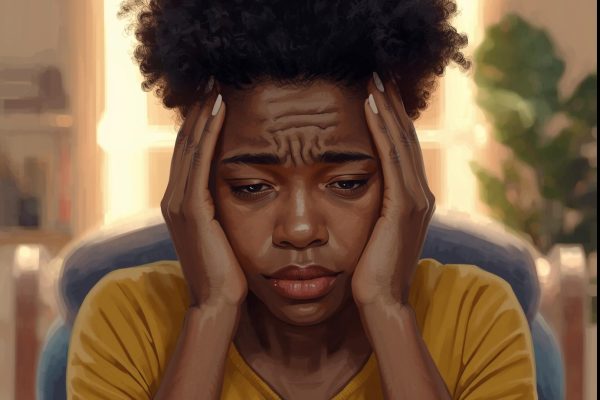When Our Helpers Burn Out: Why Therapist Wellbeing Matters
by Ryan Wright, MA, DTLLP
The Covid-19 Pandemic placed excessive demands on therapists and healthcare providers alike, reigniting a focus on their wellbeing. The pandemic reminded us that while helping others is deeply meaningful, excessive work and emotional demands can create notable occupational hazards. One of the most significant of these hazards is burnout, a state of physical and emotional exhaustion tied to the demands of one’s job (Goldberg and Maslach, 1998; Schaufeli et al., 2008). Burnout doesn’t just drain a person’s energy; it can also negatively shape how therapists and healthcare professionals feel about their own job performance (Leiter and Maslach, 2016). Over time, burnout can leave a person feeling worn down, disinterested, and disengaged from work they used to feel passionate about.
The consequences of burnout extend beyond therapists’ personal wellbeing. For example, emotionally exhausted therapists may struggle to effectively support their clients. Some may avoid consulting colleagues when faced with cases outside their expertise. Others may rely on their clients to meet their own emotional needs, or even cross harmful ethical boundaries such as engaging in sexual relationships with clients. Such behaviors undermine the purpose of therapy and put both clients and therapists at risk, including the risk of license revocation and negative public scrutiny. This is why it’s so important to recognize the early signs of burnout.
Early signs may include a growing sense of cynicism toward one’s work, frequent fatigue, unexplained physical pain, or doubting one’s own effectiveness as a therapist. These symptoms of persistent stress indicate that a therapist’s passion, zeal, and excitement for work may be depleted.
For therapists of color, burnout is even more complex. Racial minority therapists occupy a smaller sector of the therapist population than White therapists, and they face unique stressors. They must navigate the emotional demands of the job along with race-related stress. Race-related stress refers to stress caused by experiencing racism and discrimination (Utsey, 1996, Harrell, 2000). Studies have shown that race-related stress, coupled with a higher workload, exacerbates burnout for Black therapists (Shell, 2021). Moreover, Black therapists may be susceptible to vicarious racial trauma from supporting BIPOC clients who themselves have been harmed by racial discrimination and or racial violence (Brown, 2024).
What Can We Do About Burnout?
The good news is that burnout is not inevitable. There are steps we can take both as organizations and as individuals to prevent it. Scholars emphasize that real change happens at both levels (Leiter & Maslach, 2003; Morse et al., 2012).
Therapeutic organizations can best support their employees by creating a work culture defined by fairness, management of workload, social support, increased agency around work activities, equitable rewards, and alignment between employee values and job tasks (Leiter and Maslach, 2003). Additionally, leaders of organizations can take actionable steps to address racial microaggressions and racial biases in hiring and promotion (King et al., 2022).
Individually, therapists should engage in mindfulness and meditation practices, regular exercise, and deliberate time off. They should also lean on their social supports (Gall and Posluns, 2020). For BIPOC therapists, the use of affinity spaces, mentorship, spirituality, and social support has been found to curtail burnout.
When both organizations and individuals address work strain and stress, they move closer to creating sustainable, healing-centered spaces, not just for clients, but for therapists as well.
References
Brown, E. M., Taylor, J. M., Burgess, D. L., Cabell, A. L., Captari, L. E., Sandage, S. J., & Hook, J. N. (2024). Burnout, racial trauma, and protective experiences of Black and counselors. Psychological Trauma: Theory, Research, Practice, and Policy, Advance Online Publication. https://psycnet.apa.org/doi/10.1037/tra0001726
Harrell, S. P. (2000). A multidimensional conceptualization of racism‐related stress: Implications for the well‐being of people of color. American journal of Orthopsychiatry, 70(1), 42-57. https://doi.org/10.1037/h0087722
King, D. D., Fattoracci, E. S. M., Hollingsworth, D. W., Stahr, E., & Nelson, M. (2022). When thriving requires effortful surviving: Delineating manifestations and resource expenditure outcomes of microaggressions for Black employees. Journal of Applied Psychology, 108(2), 183-207. http://dx.doi.org/10.1037/apl0001016
Leiter, M.P. & Maslach, C. (2003). Areas of work life: A structured approach to organizational predictors of job burnout. In Perrewe, P.L. and Ganster, D.C. (Ed.) Emotional and Physiological Processes and Positive Intervention Strategies, 3, 91-134. https://doi.org/10.1016/S1479-3555(03)03003-8
Leiter, M. P., & Maslach, C. (2016). Latent burnout profiles: A new approach to understanding the burnout experience. Burnout Research, 3(4), 89-100. https://doi.org/10.1016/j.burn.2016.09.001
Morse, G., Salyers, M.P., Rollins, A.L., Monroe-DeVita, M. & Pfahler, C. (2012). Burnout in mental health services: A review of the problem and its remediation. Administration Policy in Mental Health, 39, 341-352. https://doi.org/10.1007/s10488-011-0352-1
Posluns, K., & Gall, T. L. (2020). Dear mental health practitioners, take care of yourselves: A literature review on self-care. International Journal for the Advancement of Counselling, 42(1), 1-20. https://doi.org/10.1007/s10447-019-09382-w
Schaufeli, W.B., Leiter, M.P. & Maslach, C. (2008). Burnout: 35 years of research and practice. Career Development International, 14(3), 204-220. https://doi/10.1108/13620430910966406
Shell, E. M., Teodorescu, D., & Williams, L. D. (2021). Investigating race-related stress, burnout, and secondary traumatic stress for Black mental health therapists. Journal of Black Psychology, 47(8), 669-694. https://doi.org/10.1177/00957984211033963
Utsey, S. O., & Ponterotto, J. G. (1996). Development and validation of the Index of Race-Related Stress (IRRS). Journal of Counseling Psychology, 43(4), 490-501. https://psycnet.apa.org/doi/10.1037/0022-0167.43.4.490



